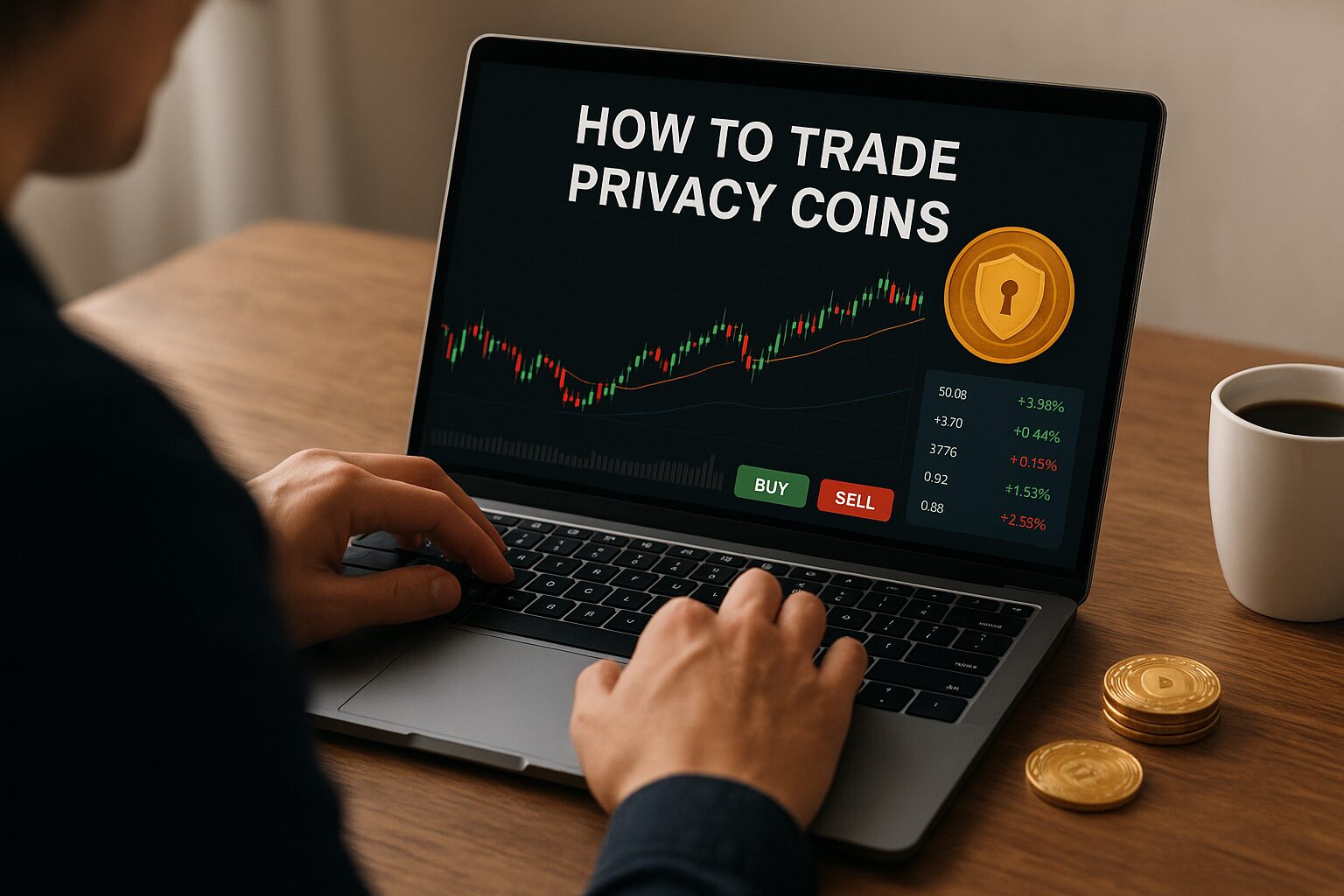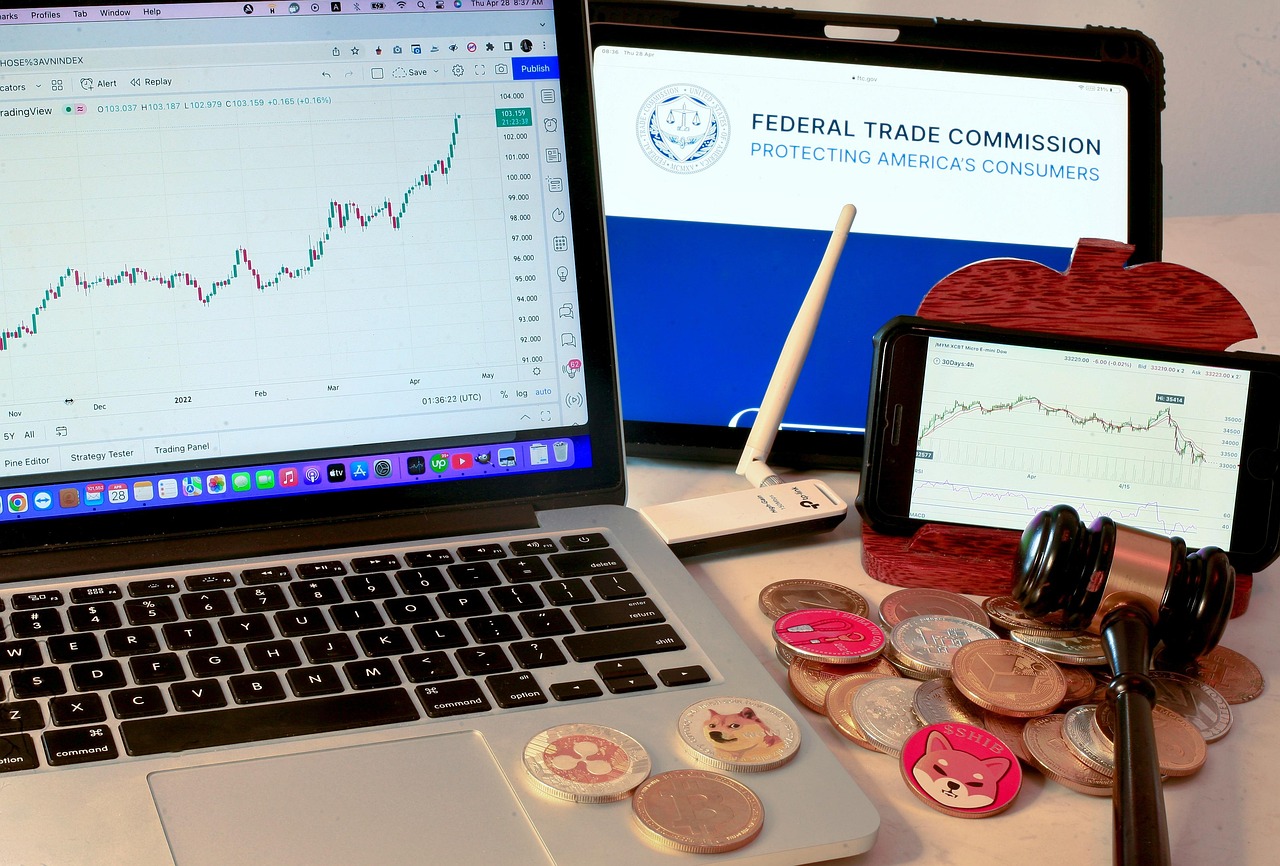In today’s digital world, privacy is power. As crypto adoption grows, so does the demand for coins that protect financial anonymity. That’s where privacy coins come in—cryptocurrencies designed to keep your transactions secure, untraceable, and truly private. Learning how to trade privacy coins safely and effectively helps you protect your identity while gaining full control over your digital assets.
This guide breaks down how to trade privacy coins safely and anonymously, explaining the tools, platforms, and strategies you can use to stay protected while remaining compliant with global crypto laws.
Introduction
What are privacy coins?
Privacy coins are cryptocurrencies built with advanced encryption that hide transaction details such as sender, receiver, and amount. Unlike Bitcoin or Ethereum—which are only pseudonymous—privacy coins like Monero (XMR), Zcash (ZEC), and Dash (DASH) ensure complete confidentiality.
Traders choose privacy coins for many reasons:
- Anonymity: Keeps your identity hidden.
- Censorship resistance: No one can freeze or block your transactions.
- Data protection: Protects against surveillance or financial profiling.
As governments tighten crypto regulations, traders worry about tracking and data leaks. Learning how to trade privacy coins safely helps you balance anonymity and compliance.
Most Well-Known Privacy Coins
A number of cryptocurrencies are meant to make privacy and anonymity better. Monero (XMR), Zcash (ZEC), and Dash (DASH) are the most well-known privacy coins. Monero uses ring signatures and stealth addresses to hide transactions, Zcash uses zero-knowledge proofs for completely private transfers, and Dash has an optional privacy tool called PrivateSend. Horizen (ZEN) and Verge (XVG) are two other well-known coins. Each has its own technology to protect user data and identity. People who care a lot about privacy in their financial transactions like these coins.
Understanding Privacy Coins
What Makes Privacy Coins Different from Other Cryptos
Most cryptocurrencies are transparent. Anyone can view wallet balances and transfers on public blockchains. Privacy coins, however, use encryption and mixing technologies to mask details.
| Feature | Bitcoin | Monero | Zcash |
|---|---|---|---|
| Transaction Privacy | Public | Fully Private | Optional |
| Address Type | Pseudonymous | Stealth Address | Shielded/Transparent |
| Technology | None | Ring Signatures | zk-SNARKs |
Privacy coins hide:
- Sender address: Using stealth addresses and ring signatures.
- Receiver address: Encrypted wallet identifiers.
- Transaction amount: Concealed through zero-knowledge proofs.
Popular Privacy Coins to Know
- Monero (XMR): Uses ring signatures and stealth addresses to mix user transactions automatically.
- Zcash (ZEC): Employs zk-SNARKs (zero-knowledge proofs) to validate transactions without revealing data.
- Dash (DASH): Offers PrivateSend, an optional feature that anonymizes coins.
- Verge (XVG): Routes transactions through TOR and I2P networks for layered privacy.
These technologies make privacy coins essential for anyone who values financial confidentiality
How do privacy coins work?
Some privacy coins use complex mathematical methods to hide information about transfers, like who sent the money and how much was sent. Privacy coins hide transaction data with ring signatures, zero-knowledge proofs, and stealth addresses. This is different from regular cryptocurrencies like Bitcoin, where transaction records can be seen by anyone on the blockchain.
This makes sure that only people who are allowed to can confirm the deal, and it keeps private data from people who aren’t supposed to see it. By doing this, privacy coins give users more privacy by keeping their financial behavior from being tracked, spied on, or shared without their permission.
Risks and Legal Considerations
Legal Status Around the World
Privacy coins exist in a gray zone. Some countries like Japan and South Korea have banned or restricted them due to anti-money laundering (AML) concerns. Others allow trading under specific guidelines.
Several exchanges, such as Bittrex and Coinbase, delisted Monero and Zcash to comply with local laws.
Tip: Always check your region’s crypto laws before trading. Compliance doesn’t mean losing your privacy—it means being smart about how you protect it.
Risks of Misusing Privacy Coins
Privacy coins make deals more private and anonymous, but using them in the wrong way comes with big risks. Law officials and regulators may be looking closely at these coins because criminals may use them to launder money, avoid paying taxes, or fund illegal activities. Users who don’t follow the rules in their area could get fines, have their accounts frozen, or even be charged with a crime. Also, because these coins are anonymous, it can be hard to get back lost money if wallets are stolen or private keys are lost. When working with privacy-focused cryptocurrencies, it is important to be aware of your legal obligations and use them responsibly.
How to Trade Privacy Coins Safely
Step 1: Choose a Secure Wallet
You’ll need a wallet that supports your chosen privacy coin.
- Cold Wallets: Offline and more secure (e.g., Ledger, Trezor).
- Hot Wallets: Easier access but vulnerable to hacks (e.g., Monero GUI Wallet, ZecWallet).
Best Practices:
- Backup your wallet seed phrase securely.
- Use encryption for all wallet files.
- Never share your private keys.
Step 2: Pick a Trustworthy Exchange
If privacy is your priority, opt for non-KYC exchanges or decentralized exchanges (DEXs).
Centralized Options (with privacy support):
- Kraken (supports Monero withdrawals)
- KuCoin (limited privacy coin trading)
Decentralized Options:
- Bisq: Peer-to-peer, no KYC, and supports Monero.
- Uniswap or ThorChain: For wrapped privacy tokens.
Before trading, check:
- Reputation and audit reports
- Withdrawal limits and anonymity features
- Fee transparency
Step 3: Use DEXs and Atomic Swaps
DEXs allow users to trade directly—no middlemen, no KYC.
Atomic swaps let you exchange coins across different blockchains without revealing personal information.
Example: Trading BTC for XMR
- Connect your Monero and Bitcoin wallets.
- Use platforms like Haveno or COMIT Network for atomic swaps.
- Confirm the transaction; both sides execute automatically.
Visual Aid (Graph):
Privacy in Crypto Transactions (2025)
|--------------------------------------|
| Regular Exchanges: 45% public data |
| DEX with VPN: 25% semi-private |
| DEX with VPN + Mixer: 15% high privacy |
| Full Anonymity Stack (VPN+Tor+DEX): 15% |
|--------------------------------------|
Source: CoinTelegraph Privacy Report 2025
Advanced Privacy Techniques
Using VPNs and Tor for Anonymous Access
Your IP address can reveal your location. Using a VPN or Tor browser hides your network identity.
Steps:
- Connect to a premium VPN (e.g., ProtonVPN, NordVPN).
- Open your DEX or wallet only after connecting.
- For extra protection, route through Tor before connecting to your wallet.
BMixing and Tumbling Services
Mixing and tumbling services are specialized ways to make cryptocurrency transfers more private and anonymous. By pooling coins and sending them to different addresses, these services make it hard to track where money comes from or where it goes. They can protect users’ privacy and keep financial information from being looked at by people who shouldn’t be, but using them comes with risks. If you use it in the wrong way, the government might notice, and some services might be fake or charge a lot of money. Before using mixing or rolling services, it’s important to find providers with a good reputation and know what the law says.
Common Mistakes to Avoid
- Trading from an identifiable home IP address
- Leaving funds on centralized exchanges
- Clicking phishing links or fake “privacy” apps
- Ignoring local tax and trading regulations
Remember: privacy doesn’t mean invisibility—it means control.
Staying Compliant While Maintaining Privacy
You don’t have to break the law to keep your banking information private. Users can stay legal and protect their personal and commercial data by following local rules, using real privacy-focused tools, and keeping good records of their crypto activity. This means reporting events that are taxed, staying away from illegal deals, and picking services that follow the law. Finding the right mix will let you enjoy the benefits of privacy coins and other tools that protect your privacy without putting yourself at risk of legal trouble or government scrutiny.
Future of Privacy Coins
The future of privacy coins lies at the point where new technologies meet strict government oversight. As digital privacy becomes more important, more people who care about privacy in their financial activities are likely to want these coins. In the meantime, governments and regulators are tightening their control, which makes it harder for broad adoption to happen. New developments in cryptography, privacy solutions that focus on legal compliance, and integration with popular financial platforms could lead to a future where privacy coins combine user privacy with legal compliance, making sure they stay safe and socially acceptable.
The next wave of crypto privacy includes zk-rollups, MimbleWimble, and zero-knowledge proofs, offering even better anonymity with faster speeds. However, governments are also creating privacy regulation frameworks, aiming to balance security and transparency.
Conclusion
Trading privacy coins is about more than hiding transactions—it’s about protecting your digital freedom.
By choosing the right wallets, DEXs, and privacy tools, you can stay anonymous, secure, and compliant.
In summary:
- Use VPNs and decentralized platforms.
- Avoid sharing identifiable information.
- Stay informed about crypto laws
FAQs
1. What is the safest way to trade privacy coins anonymously?
Use decentralized exchanges (DEXs), VPNs, and atomic swaps to trade without KYC.
2. Are privacy coins legal in my country?
Legality varies by country. Always check local crypto regulations before trading.
3. Which wallet is best for storing privacy coins?
Cold wallets like Ledger and hot wallets like Monero GUI or ZecWallet are reliable.
4. Can I trade Monero without KYC verification?
Yes, using DEXs like Bisq allows anonymous trading without KYC.
5. How can I avoid scams while trading privacy coins?
Avoid unknown mixers, verify exchange URLs, and never share wallet keys.
6. What’s the difference between a DEX and a centralized exchange for privacy coins?
DEXs don’t require personal info or custodial control, unlike centralized exchanges.
7. Do privacy coins guarantee 100% anonymity?
No system is perfect, but proper tools (VPN, Tor, non-KYC exchanges) greatly enhance anonymity.
Disclaimer
This article is for educational purposes only. Trading privacy coins involves risks and may be restricted in certain regions. Always follow local laws and use trusted platforms. The author is not responsible for financial losses or legal consequences.



